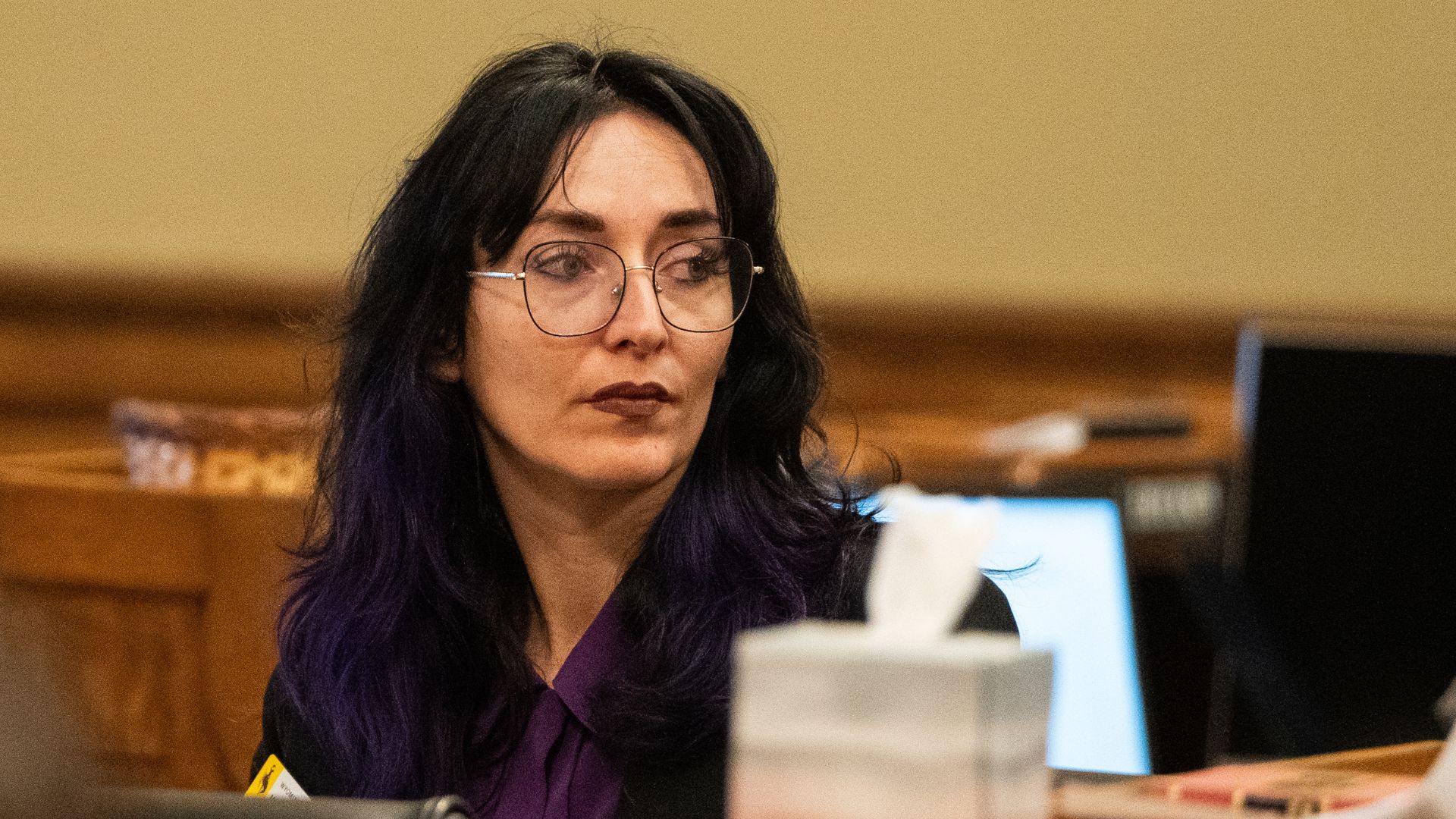Wyoming lawmakers step toward bill clarifying corner crossing’s legality

FROM WYOFILE:
Some agricultural industry lobbyists urged a legislative committee to wait and see whether the U.S. Supreme Court takes the case, but others — including law enforcement — testified that they could use precise legal directions.
Corner-crossing public land users have had their legal access rights repeatedly affirmed, and on Friday, the sheriff of the county where it all started was asked if state statute changes could help his deputies navigate the new legal landscape.
Carbon County Sheriff Alex Bakken retorted that his officers are acting under the 10th Circuit Court of Appeals’ decision upholding corner crossing’s legality, while also being “very, very careful” to ensure that those public land users aren’t contacting or damaging private property. Current deputies are “fairly well versed in this issue,” he said.
“As time progresses and new deputies [come on board] and this issue becomes more and more prevalent, I think more clarification would be beneficial,” Bakken told members of the Wyoming Legislature’s Travel, Recreation, Wildlife and Cultural Resources Committee gathered in Dubois.
Minutes later, the panel of Wyoming senators and representatives voted in a show of hands to prepare language addressing law enforcement’s desire for more legal clarity.
Corner crossing is defined as stepping from one piece of public land to another where the landscape consists of a checkerboard-like pattern with alternating public and private ownership. Corner crossers needn’t touch kitty-corner pieces of private ground, but they necessarily pass through the airspace above it.
The proposition of a bill further cementing the public’s right to access 3 million acres in Wyoming was not without its controversy.
“This issue is not settled at the federal level,” Wyoming Farm Bureau Federation lobbyist Brett Moline testified in Dubois. “Until it is settled, I don’t think there’s much that we can do.”
Moline’s remark alluded to the prospect that the Supreme Court of the United States might take on the corner-crossing case. That’s considered unlikely — several people said in the meeting. Nevertheless, it’s being sought by lawyers for Fred Eshelman, the wealthy North Carolina pharmaceutical executive who owns Elk Mountain Ranch in Carbon County. Checkerboarded public land next to and throughout the ranch was the site of the showdown that so far has affirmed the public’s right to access that public land.
Wyoming Stock Growers Association lobbyist Jim Magagna also urged lawmakers to wait on SCOTUS before tinkering with state statute.
“If it is heard by the Supreme Court and upheld, then I think where we will be coming to the Legislature and need your assistance … would be in defining the parameters of it,” Magagna said. “There’s going to be so many things that would need to be addressed from a Wyoming perspective.”
The longtime lobbyist threw out some suppositions: Could someone invent a ladder that could accommodate a side-by-side or even a pickup truck that could enable motorized corner crossing?
But other parties encouraged action, translating the 10th Circuit’s decision into clear-cut Wyoming law.
“Is this complicated? Wildly,” Wyoming Backcountry Hunters and Anglers lobbyist Sabrina King said. “Do we probably need clarification at some point that says, ‘Corner crossing, if you don’t touch the surface of the private land, is not a crime.’ That would be helpful.”
“It’s wild that we have to lay out in statute that not committing a crime is not committing a crime,” she added, “but with the complication of this issue, that may be necessary.”
Efforts to amend Wyoming law to recognize the federal courts’ corner-crossing decisions have so far fallen short. Democrat Rep. Karlee Provenza, of Laramie, ran a bill during the Legislature’s 2025 general session — prior to the 10th Circuit’s decision — but it went nowhere after being held in the drawer by Republican Speaker of the House Chip Neiman, a Hulett rancher.
Five months later, Provenza is working with legislative staff on the language of a bill that might gain support of the Travel, Recreation, Wildlife and Cultural Resources Committee, of which she’s a member.
“It’s a whole lot easier to point to a statute in the green book than it is to say, ‘Here’s this however-many-page court document that tells us that we can do this, this and this,’” Provenza told WyoFile. “If we have it in our state statute, it’s just a lot clearer for law enforcement on the ground. It reduces disputes between law enforcement and landowners who are potentially trying to [prevent] sportsmen from being able to hunt on their public land.”
The Travel, Recreation, Wildlife and Cultural Resources Committee meets next on Aug. 19 in Casper.
WyoFile is an independent nonprofit news organization focused on Wyoming people, places and policy.
This story was posted on June 10, 2025.







